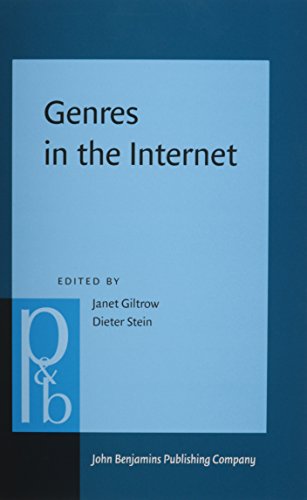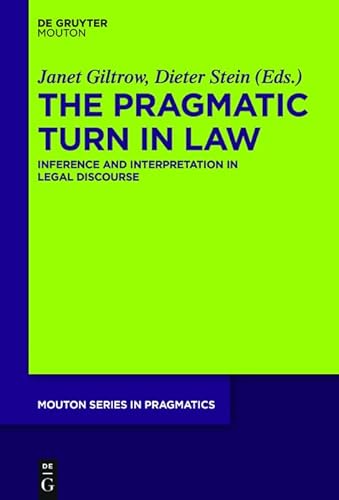giltrow janet stein dieter (9 Ergebnisse)
Suchfilter
Produktart
- Alle Product Types
- Bücher (9)
- Magazine & Zeitschriften (Keine weiteren Ergebnisse entsprechen dieser Verfeinerung)
- Comics (Keine weiteren Ergebnisse entsprechen dieser Verfeinerung)
- Noten (Keine weiteren Ergebnisse entsprechen dieser Verfeinerung)
- Kunst, Grafik & Poster (Keine weiteren Ergebnisse entsprechen dieser Verfeinerung)
- Fotografien (Keine weiteren Ergebnisse entsprechen dieser Verfeinerung)
- Karten (Keine weiteren Ergebnisse entsprechen dieser Verfeinerung)
- Manuskripte & Papierantiquitäten (Keine weiteren Ergebnisse entsprechen dieser Verfeinerung)
Zustand Mehr dazu
- Neu (6)
- Wie Neu, Sehr Gut oder Gut Bis Sehr Gut (2)
- Gut oder Befriedigend (1)
- Ausreichend oder Schlecht (Keine weiteren Ergebnisse entsprechen dieser Verfeinerung)
- Wie beschrieben (Keine weiteren Ergebnisse entsprechen dieser Verfeinerung)
Einband
Weitere Eigenschaften
- Erstausgabe (Keine weiteren Ergebnisse entsprechen dieser Verfeinerung)
- Signiert (Keine weiteren Ergebnisse entsprechen dieser Verfeinerung)
- Schutzumschlag (Keine weiteren Ergebnisse entsprechen dieser Verfeinerung)
- Angebotsfoto (3)
Sprache (1)
Preis
- Beliebiger Preis
- Weniger als EUR 20 (Keine weiteren Ergebnisse entsprechen dieser Verfeinerung)
- EUR 20 bis EUR 45
- Mehr als EUR 45
Gratisversand
- Kostenloser Versand nach USA (Keine weiteren Ergebnisse entsprechen dieser Verfeinerung)
Land des Verkäufers
Verkäuferbewertung
-
Genres in the Internet: Issues in the theory of genre (Pragmatics and Beyond New Series)
Verlag: John Benjamins Publishing Compan, 2009
ISBN 10: 9027254338 ISBN 13: 9789027254337
Sprache: Englisch
Anbieter: Books From California, Simi Valley, CA, USA
Hardcover. Zustand: Fine.
-
Genres in the Internet: Issues in the theory of genre (Pragmatics and Beyond New Series)
Verlag: John Benjamins Publishing Company, 2009
ISBN 10: 9027254338 ISBN 13: 9789027254337
Sprache: Englisch
Anbieter: Phatpocket Limited, Waltham Abbey, HERTS, Vereinigtes Königreich
EUR 35,78
EUR 12,11 für den Versand von Vereinigtes Königreich nach USAAnzahl: 1 verfügbar
In den WarenkorbZustand: Good. Your purchase helps support Sri Lankan Children's Charity 'The Rainbow Centre'. Ex-library, so some stamps and wear, but in good overall condition. Our donations to The Rainbow Centre have helped provide an education and a safe haven to hundreds of children who live in appalling conditions.
-
The Pragmatic Turn in Law: Inference and Interpretation in Legal Discourse
Anbieter: Revaluation Books, Exeter, Vereinigtes Königreich
EUR 36,76
EUR 14,22 für den Versand von Vereinigtes Königreich nach USAAnzahl: 2 verfügbar
In den WarenkorbPaperback. Zustand: Brand New. 388 pages. 9.25x6.50x1.25 inches. In Stock.
-
The Pragmatic Turn in Law: Inference and Interpretation in Legal Discourse
Anbieter: Kennys Bookstore, Olney, MD, USA
EUR 49,95
EUR 9,09 für den Versand innerhalb von/der USAAnzahl: Mehr als 20 verfügbar
In den WarenkorbZustand: New. 2019. Paperback. . . . . . Books ship from the US and Ireland.
-
The Pragmatic Turn in Law : Inference and Interpretation in Legal Discourse
Anbieter: AHA-BUCH GmbH, Einbeck, Deutschland
Taschenbuch. Zustand: Neu. Druck auf Anfrage Neuware - Printed after ordering - In legal interpretation, where does meaning come from Law is made from language, yet law, unlike other language-related disciplines, has not so far experienced its 'pragmatic turn' towards inference and the construction of meaning. This book investigates to what extent a pragmatically based view of l linguistic and legal interpretation can lead to new theoretical views for law and, in addition, to practical consequences in legal decision-making.With its traditional emphasis on the letter of the law and the immutable stability of a text as legal foundation, law has been slow to take the pragmatic perspective: namely, the language-user's experience and activity in making meaning. More accustomed to literal than to pragmatic notions of meaning, that is, in the text rather than constructed by speakers and hearers ? the disciplines of law may be culturally resistant to the pragmatic turn. By bringing together the different but complementary perspectives of pragmaticians and lawyers, this book addresses the issue of to what extent legal meaning can be productively analysed as deriving from resources beyond the text, ? beyond the letter of the law.This collection re-visits the feasibility of the notion of literal meaning for legal interpretation and, at the same time, the feasibility of pragmatic meaning for law. Can explications of pragmatic meaning support court actions in the same way concepts of literal meaning have traditionally supported statutory interpretations and court judgements What are the consequences of a user-based view of language for the law, in both its practices of interpretation and its definition of itself as a field Readers will find in this collection means of approaching such questions, and promising routes for inquiry into the genre- and field-specific characteristics of inference in law.In many respects, the problem of literal vs. pragmatic? meaning confined to the text vs. reaching beyond it ? will appear to parallel the dichotomy in law between textualism and intentionalism. There are indeed illuminating connections between the pair of linguistic terms and the more publicly controversial legal ones. But the parallel is not exact, and the linguistic dichotomy is in any case anterior to the legal one. Even as linguistic-pragmatic investigation may serve legal domains, the legal questions themselves point back to central conditions of all linguistic meaning.
-
The Pragmatic Turn in Law | Inference and Interpretation in Legal Discourse
Anbieter: preigu, Osnabrück, Deutschland
Taschenbuch. Zustand: Neu. The Pragmatic Turn in Law | Inference and Interpretation in Legal Discourse | Dieter Stein (u. a.) | Taschenbuch | 373 S. | Englisch | 2019 | De Gruyter Mouton | EAN 9781501518942 | Verantwortliche Person für die EU: Walter de Gruyter GmbH, De Gruyter GmbH, Genthiner Str. 13, 10785 Berlin, productsafety[at]degruyterbrill[dot]com | Anbieter: preigu.
-
Genres in the Internet: Issues in the Theory of Genre
Anbieter: Revaluation Books, Exeter, Vereinigtes Königreich
EUR 97,27
EUR 14,22 für den Versand von Vereinigtes Königreich nach USAAnzahl: 1 verfügbar
In den WarenkorbHardcover. Zustand: Brand New. 284 pages. 9.50x6.25x1.00 inches. In Stock.
-
The Pragmatic Turn in Law : Inference and Interpretation in Legal Discourse
Anbieter: Buchpark, Trebbin, Deutschland
Zustand: Sehr gut. Zustand: Sehr gut | Sprache: Englisch | Produktart: Bücher.
-
The Pragmatic Turn in Law : Inference and Interpretation in Legal Discourse
Anbieter: AHA-BUCH GmbH, Einbeck, Deutschland
Buch. Zustand: Neu. Druck auf Anfrage Neuware - Printed after ordering - In legal interpretation, where does meaning come from Law is made from language, yet law, unlike other language-related disciplines, has not so far experienced its 'pragmatic turn' towards inference and the construction of meaning. This book investigates to what extent a pragmatically based view of l linguistic and legal interpretation can lead to new theoretical views for law and, in addition, to practical consequences in legal decision-making.With its traditional emphasis on the letter of the law and the immutable stability of a text as legal foundation, law has been slow to take the pragmatic perspective: namely, the language-user's experience and activity in making meaning. More accustomed to literal than to pragmatic notions of meaning, that is, in the text rather than constructed by speakers and hearers ? the disciplines of law may be culturally resistant to the pragmatic turn. By bringing together the different but complementary perspectives of pragmaticians and lawyers, this book addresses the issue of to what extent legal meaning can be productively analysed as deriving from resources beyond the text, ? beyond the letter of the law.This collection re-visits the feasibility of the notion of literal meaning for legal interpretation and, at the same time, the feasibility of pragmatic meaning for law. Can explications of pragmatic meaning support court actions in the same way concepts of literal meaning have traditionally supported statutory interpretations and court judgements What are the consequences of a user-based view of language for the law, in both its practices of interpretation and its definition of itself as a field Readers will find in this collection means of approaching such questions, and promising routes for inquiry into the genre- and field-specific characteristics of inference in law.In many respects, the problem of literal vs. pragmatic? meaning confined to the text vs. reaching beyond it ? will appear to parallel the dichotomy in law between textualism and intentionalism. There are indeed illuminating connections between the pair of linguistic terms and the more publicly controversial legal ones. But the parallel is not exact, and the linguistic dichotomy is in any case anterior to the legal one. Even as linguistic-pragmatic investigation may serve legal domains, the legal questions themselves point back to central conditions of all linguistic meaning.







